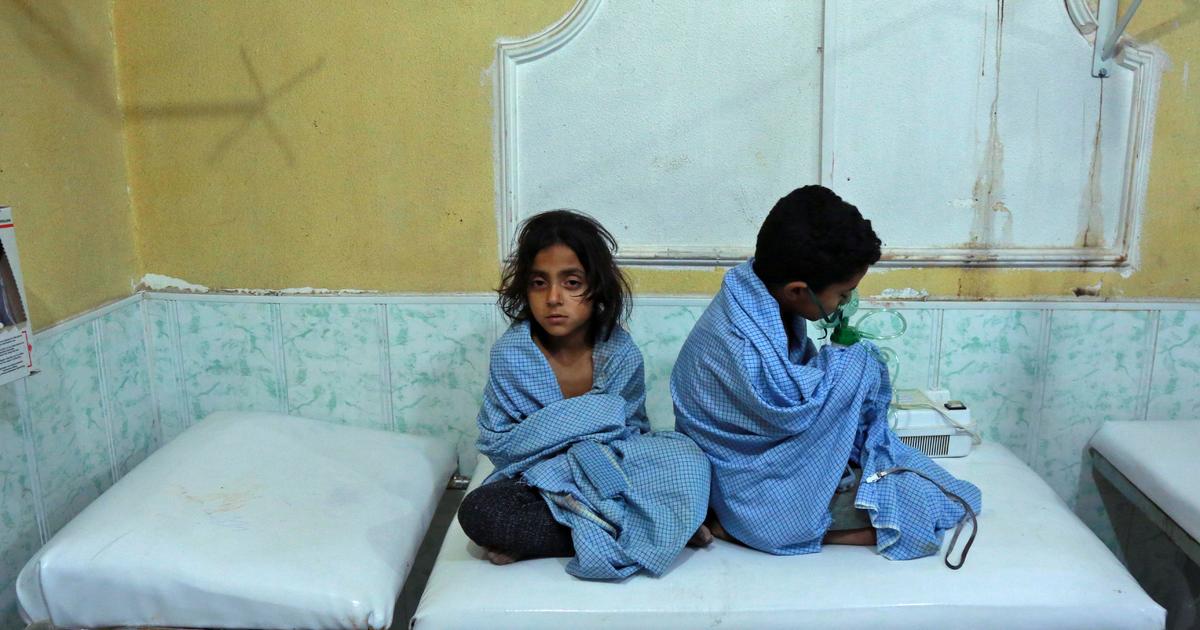
CHTAURA, Lebanon — A ceasefire has been agreed for Syria, but it remains an aspiration on the ground. Dictator Bashar Assad’s assault on rebel-held suburbs of his own capital continued on Monday.
CBS News correspondent Seth Doane, reporting from inside Lebanon close to the Syrian border, says the Assad regime’s bombardment of the eastern Ghouta suburbs of Damascus have been some of the most aggressive assaults of the seven-year Syrian civil war.
Scores of victims, including young children and infants, have been treated at hospitals and clinics in cut-off parts of Ghouta like rebel-controlled Douma. The facilities are often hit themselves by the indiscriminate airstrikes, and medics working in them say they are overwhelmed and supplies have run out.
While the intensity of strikes lessened slightly over the weekend, forces allied with the Syrian government continued bombing the Damascus suburbs in spite of the United Nations-brokered ceasefire approved on Saturday.
The 30-day ceasefire agreement did not specify a start time — apparently the result of lobbying by Syria’s ally Russia. Later on Monday, however, Russia’s defense minister said President Vladimir Putin had ordered daily five-hour “humanitarian pauses” in eastern Ghouta, to begin from Tuesday.
Defense Minister Sergei Shoigu said in a statement that the ceasefires would be in place between 9 a.m. and 2 p.m. local time every day, beginning Tuesday. He said Russia would also help establish an evacuation route for civilians from the area.
There was no immediate reaction to the Russia proclamation from other U.N. Security Council members, or the Syrian regime.
It is estimated that more than 500 people, including at least 130 children, have been killed since this latest assault began last week in the eastern Ghouta suburbs. According to the international medical charity Doctors Without Borders, more than 630 have been killed since the onslaught ramped-up on Feb. 18.
Pictures published online over the weekend by Syrian activists show patients, including women and children, apparently suffering symptoms consistent with a chlorine gas attack. The 16 patients in the village of Shifuniya were being treated by the Syrian American Medical Society, which operates inside the rebel-held Damascus suburbs.
The Syrian government has always denied using chemical weapons, and their Russian allies have accused the rebels of using toxic materials to later blame the government.
New drone video from the northern city of Aleppo shows the extent to which Assad’s forces are willing to destroy cities to try to crush rebel strongholds… and take back control.
A United Nations official recently described eastern Ghouta as “hell on earth.” An estimated 400,000 people are surrounded by government forces, and the ceasefire is supposed to allow for medical evacuations and the delivery of much needed humanitarian aid.
It has not, thus far, and on Monday morning the United Nations human rights chief didn’t sound overly optimistic about the ceasefire’s prospects.
Zeid Ra’ad al-Hussein called for a “full implementation” of the truce at the Human Rights Council in Geneva, but noted that “airstrikes continue” on the rebel-held Damascus suburbs.
According to the London-based Syrian Observatory for Human Rights (SOHR), at least 24 people were killed in fresh bombing of the towns and villages in eastern Ghouta on Monday morning alone. Assad-allied forces hammered Shifuniya and Douma with dozens of shells and at least two barrel bombs, the monitoring group said.
In the hard-hit town of Douma, SOHR said nine people from the same family, including three children, were killed in overnight strikes.
On Saturday, the Security Council unanimously approved a resolution demanding a 30-day ceasefire across Syria, “without delay,” to enable humanitarian aid to reach millions of besieged civilians, primarily in the northern Idlib province and in eastern Ghouta, and for the evacuation of critically ill and wounded.
To get the resolution passed, sponsors Kuwait and Sweden had to make a last-minute amendment on Friday to ensure Russian support, CBS News’ Pamela Falk reported from U.N. headquarters. The compromise was dropping a demand that the ceasefire take effect within 72 hours.

